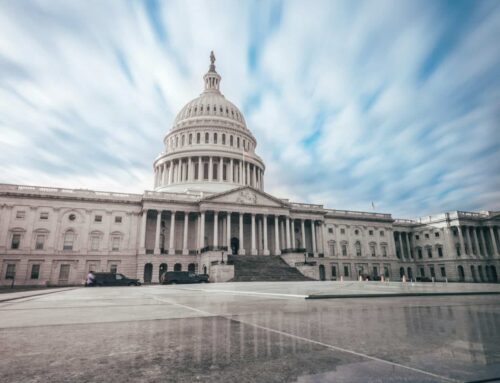Next Sunday, people the world over will be crowding around televisions to watch the Denver Broncos and Seattle Seahawks slug it out in Super Bowl XLVIII. This year’s game, in MetLife Stadium across the river from New York City, will be the first one ever played outdoors in cold weather, and ticket and advertising prices have skyrocketed. Any American spectators should pay special attention, because they’re helping subsidize the whole lavish production. In fact, in a couple months when taxpayers are sweating over tax forms and writing checks to the IRS, the National Football League (NFL) will be relaxing, basking in their tax-exempt nonprofit status. That’s right. While the individual teams in this multi-billion dollar industry are for-profit, the league that governs them, and emblazons its logo over every ticket, uniform, or trinket the teams touch, is not.
The NFL hasn’t had to pay any taxes to the IRS since it applied for nonprofit status in 1942. That status was cemented into permanent law in 1966 when one small section of Public Law 89-800 redefined tax-exempt trade associations in the IRS code section 501(c)6 to include, explicitly, “professional football leagues.” The language hasn’t changed since.
In context, the exemption for professional football in the tax code is almost ironic. In particular, the NFL seems to obviously violate what’s called the “prohibition against private inurement” for 501(c)6 nonprofits. The Joint Committee on Taxation (JCT) explains that no tax-exempt organization in the same category as the NFL can use its “assets for the benefit of a person or entity with a close relationship to the organization.” What about those multi-billion dollar NFL franchises? What about their billionaire owners? Shouldn’t they count?
Looking at how the NFL generates wealth for the teams and their owners, it’s hard to see why they don’t. This year, the NFL was projected to rake in $9-$10 billion in revenue. The majority of that income from the sale of tickets and television broadcasting rights goes straight to the teams. The NFL gets a slice of the pie, but only indirectly, through annual dues each of the 32 teams pay the NFL. Tax forms indicate that in 2011 (the most recent year available) those dues added up to $254.6 million. The money is used by the NFL to promote the business of professional football and thereby enriches the teams and owners. And the league is doing it well. In 2013, 30 of the top 50 most valuable sports franchises in the world were NFL teams. The only two not to make the cut, the St. Louis Rams and Jacksonville Jaguars, came in 51st and 52nd. It sounds like the NFL is using its assets to do plenty of “inuring” for the benefit of the privately held teams.
Of course, the NFL isn’t hurting for cash either. In 2011, the seven members of the NFL’s board of directors and its former commissioner made $65.9 million collectively. Roger Goodell, the current commissioner, was paid just over $30 million alone. There’s also the $36 million it spent to construct plush new offices on Park Avenue in New York City, or the $14 million it paid in rent for them.
How much the tax-exemption for the NFL is bowling over taxpayers is unclear. The JCT estimates the 10-year cost to be approximately $109 million, while Sen. Tom Coburn (R-OK), who has filed legislation that would end the practice, estimates it could be as much as $91 million a year. Though the money matters, the principle of the giveaway is almost worse. America loves football, but that doesn’t mean American taxpayers should funnel millions of tax dollars to billionaires.
As Super Bowl XLVIII draw closer, fans will be hard pressed not to notice the money being made everywhere and the league’s largesse. The NFL has taken over 14 blocks of Broadway in New York City, dubbing it “Super Bowl Boulevard,” and constructed a six story-tall toboggan slide in Times Square. The game is being played on February 2nd, Groundhog Day. Taxpayers should hope that Punxsutawney Phil not seeing his shadow doesn’t just signal the end of winter, but also taxpayer subsidies for the NFL sliding to an end.










